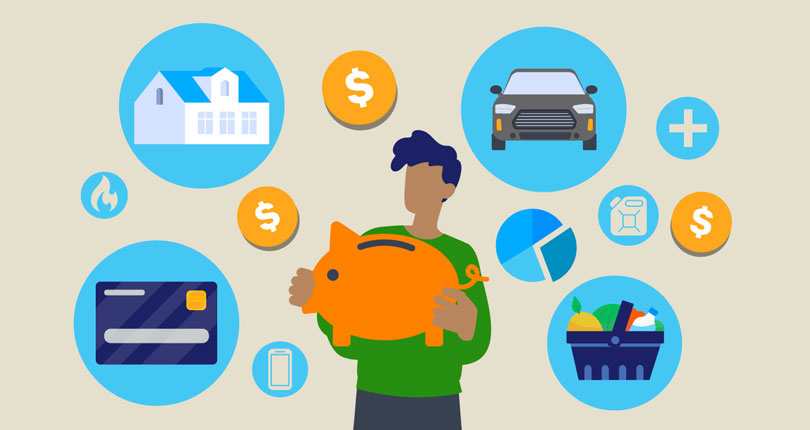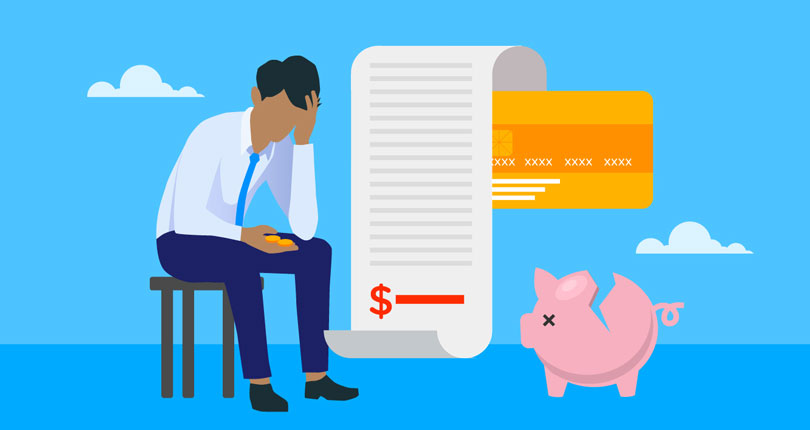Valentine's Day Spending 2023

For many Americans Valentine’s Day is a time to express and openly show their love and affection for their partner, but for some, it can also be a tense and stressful period trying to find that perfect gift.
With the increase in prices for everyday items, from gas to food, what will Americans look to spend on their loved ones this Valentine's Day, and will this affect their spending?
To reveal how Americans will be spending this Valentine's day, Self Financial commissioned a survey of 1,121 adult Americans in relationships on their spending habits for Valentine's Day. The survey asked people who are currently in a relationship what their spending has been in previous years, what sorts of experiences they seek out on the day of love, and how they intend to spend their money in 2023.
Explore the findings of the Valentine’s Day spending survey below.
Key findings on Valentine's Day spending
- Over 90% of Americans in a relationship will be purchasing gifts and/or experiences this Valentine's Day, despite the fact that 83.7% think it's commercialized.
- Surprisingly, despite inflation, 56.9% of Americans in relationships will look to spend the same or a little more than last year on their loved ones.
- 31.2% of Americans in relationships will use credit cards this year to pay for this Valentine’s Day, in comparison to 40.2% using savings
- People are planning on spending an average of $127.87, in 2022, the average spend was found to be $113.25, indicating spending has potentially increased by 12.9%.
- Men in previous years spent on average $40 more than women on gifts and experiences for Valentine's Day ($60.50 compared to $20.50).
- The most popular gift is going out for a romantic meal this Valentine’s Day (33.1%).
Spending on your Valentine
Overall, only 1 in 10 won’t be buying something for their significant other this Valentine’s Day, as the vast majority (90.5%) are planning on spending to show their love.
When this survey was last run back in 2022, 85% of people said they were buying Valentine’s Day gifts, indicating a possible shift in purchasing behavior. There could be many reasons for this, but it is important to note that the pandemic was affecting the U.S. in a very different way in early 2022 compared to 2023. With many restrictions still in place, this is the first year where people are back to life more like pre-pandemic times.
As a general trend, there are more people buying Valentine’s Day gifts (90.5%) than expecting them (81.4%), therefore many are likely in for a surprise this year from their loved ones.
Has spending changed for Valentine’s Day 2023?
Most people (36.9%) are spending about the same this year as they did in 2022, while the second largest majority (31%) are spending a little more than last year.
Only 12% said they were spending less. However, there are 20% of people looking to spend a lot more this year, despite the rising costs, it seems people are still looking to show their loved ones that they care this Valentine’s Day.
How much do people spend on Valentine’s Day?
This year the average amount that people will look to spend on their partners is $127.87, with men looking to spend an average of $133.19 and women an average of $123.82. In 2022, when this survey was last run, the average spend was found to be $113.25, indicating spending has potentially increased by 12.9%. With women on average spending $99.63 and men $129.87.
Comparing January 2022 to December 2022 (the latest inflation figures available at the time of writing), the data shows that $113.25 has the same buying power as $119.55. [1] Bureau of Labour Statistics, CPI Inflation Calculator https://www.bls.gov/data/inflation_calculator.htm Therefore, even accounting for inflation, people are still spending more in 2023 on Valentine’s.
In terms of gender, with women earning 82 cents for every dollar a man earns, [2] U.S. Census Bureau, Gender Pay Gap Widens as Women Age https://www.census.gov/library/stories/2022/01/gender-pay-gap-widens-as-women-age.html#:~:text=Although%20the%20gender%20pay%20gap,the%20Bureau%20of%20Labor%20Statistics it may not come as a surprise that men will spend more than women on average, as they can statistically afford to do so.
On average people spend a maximum of $143.12 on their Valentine, with 18-24 year olds looking to be the highest spenders, (with 4.2% of them spending over $400)!
How are people planning to pay for Valentine’s Day?
The most popular form of payments is going to be using savings and credit cards to pay for Valentine’s Day this year. With 35.8% of 35-44 year olds in relationships using these, as more people will be stretching themselves financially this year.
However, 47.5% of 55-64 year olds will use their savings this year to pay for Valentine’s Day, which is 28.8% more than those 55-64 using credit cards.
Gen X (35-44 year olds) will be the most likely to use plastic to pay for Valentine's Day, with 35.8% using credit cards.
In comparison, 42.7% of Millenials (25-34) would use their savings rather than their credit cards 32.1%, as well as Gen Z (18-24) who will also be looking to use their savings 42.1% rather than credit cards 22.3%.
Overall, utilizing savings is the way most Americans will be paying for Valentine’s Day in 2023, however an average of 31.2% of Americans will be using credit cards, 11% less than the average for those who will be using savings (40.2%).
Spending that is appreciated
The survey also asked people what they would appreciate most this year as a gift. The most common gift people would appreciate was a romantic meal (33.1%), which was also the most popular answer in 2022.
The top ten most appreciated Valentine’s Day gifts
The top ten most appreciated gifts on Valentine’s Day are:
- Romantic meal at a restaurant (33.1%)
- Day out (26.7%)
- Jewelry (26.4%)
- Chocolates (25.6%)
- Flowers (24.6%)
- Home-cooked meal (20.5%)
- Vacation in the U.S. (18.2%)
- A watch / watches (17.1%)
- Cards (16.6%)
- Perfume (15.9%)
In 2022, the survey saw 1 in 25 or 4.3% wanting cryptocurrency for a gift, however this year has seen a drop to 1.9%, which is less than 2 in 100 people wanting cryptocurrency as a gift this year, which is over 50% decrease in interest.
How other gifts are compared for levels of appreciation can be seen in the chart below.
| Restaurant meal | 33.18% |
| Day out | 26.71% |
| Jewelry | 26.44% |
| Chocolates/candy | 25.62% |
| Flowers | 24.61% |
| Home-cooked meal | 20.51% |
| U.S. vacation | 18.23% |
| Watch(es) | 17.14% |
| Cards | 16.68% |
| Perfume(s) | 15.95% |
| Vacation abroad | 14.31% |
| Light practical gifts | 13.86% |
| Beauty products | 12.58% |
| Cuddly toys | 10.21% |
| Adult toys | 10.03% |
| Art | 9.66% |
| Video games | 9.12% |
| Lingerie | 8.20% |
| Heavy practical gifts | 5.93% |
| Cryptocurrency/NFTs | 1.91% |
Affordability of this Valentine's Day
With the current inflation and cost increases this year placing a significant financial burden on everyone, are people worried about the affordability of Valentine’s Day this year?
The most financially worried are 18-24 year olds with 67.4% saying they were worried about the affordability this year. However, the least worried are over 65 year olds with 65.3% saying they are not concerned about affordability this year. Overall 57.8% of Americans in relationships are worried about affordability this year, meaning 10.4% more of Gen Z are worried about affordability than the overall average.
With this in mind, 52.8% of people will look to make handmade gifts this year to keep the costs down, which can be a great way to show your love for that special someone without breaking the bank.
How do people feel about Valentine’s gifts?
The vast majority (71.4%) of respondents said that they would feel positive about their partner if they bought them something they neither wanted nor needed for Valentine’s Day. However, 11.4% would feel negative, potentially harming the relationship. A final 17.2% said they were unsure how receiving a gift they didn’t want would impact them.
What happens if no gift is purchased?
Overall, 16.9% of people would feel very hurt or upset if their partner did not buy them anything for Valentine’s Day this year.
The group most likely to be hurt or upset (31.1%) if their partner didn’t buy them anything for Valentine’s Day were those aged 55-64. In comparison, 53.8% of those over 65s wouldn’t feel upset if their partner didn’t buy them anything for Valentine’s Day, potentially revealing a difference in feelings towards the commercial side of Valentine’s Day.
Responses were broken down by gender to see if there was a difference between how men and women would feel if their partners didn't buy them anything for Valentine's Day.
Only 2% more of American women would feel upset if their partner didn’t buy them anything for Valentine's Day (17.7% vs 15.7%), indicating that there isn’t much of a gender difference for how hurt someone would feel based on Valentine’s gifts alone.
What happens if the spending is unequal?
The majority (52%) of people wouldn’t be hurt or upset if their partner spent less than they did, however, the remaining 48% would feel hurt in some way, with 9.6% feeling “very hurt”.
On the opposite side of this, respondents were asked how they would feel if their partner spent more on them than they did. A similar 52.5% said they wouldn’t be hurt or upset, while 47.5% said they would be hurt in some way, with 9.5% feeling “very hurt”.
The data here appears to show that most people don’t mind if Valentine’s Day spending is unequal, however it is nearly 50-50 whether someone would be hurt or not.
Is Valentine’s Day commercialized rather than romantic?
Despite over 90% of Americans saying they will be purchasing a present this year, the survey on behalf of Self Financial asked respondents if they thought Valentine’s Day was more commercialized than romantic.
Overall, 83.7% think that Valentine’s Day is commercialized, with 83.4% of women and 84.2% of men. However, over 90% of people are still looking to spend this Valentine’s Day, so despite its commercialization, people are still looking to show their love and affection for their significant other this Valentine’s Day.
Methodology
The survey conducted on behalf of Self Financial asked 1,287 American adults between January 3rd to January 10th 2023, of which 1,121 were in a relationship, a series of questions about their intended and previous Valentine’s Day shopping habits, gift preferences, attitudes towards theirs and their partner's spending, and expectations.
For all questions related to spending and buying gifts for partners this year and in the past 12 months, the study analyzed data from the 1,121 respondents in relationships. When respondents were asked about their gift preferences, and what would be most appreciated as a gift, all respondents were included in the results.
The demographic breakdown of respondents is as follows:
Gender:
- Women 53.26%
- Men 45.76%
- Non-binary 0.71%
- Prefer not to say/other 0.27%
Age:
- 18-24 7.40%
- 25-34 39.96%
- 35-44 27.39%
- 45-54 14.90%
- 55-64 8.03%
- 65 and over 2.32%
Sources
- [1] Bureau of Labour Statistics, CPI Inflation Calculator https://www.bls.gov/data/inflation_calculator.htm
- [2] U.S. Census Bureau, Gender Pay Gap Widens as Women Age https://www.census.gov/library/stories/2022/01/gender-pay-gap-widens-as-women-age.html#:~:text=Although%20the%20gender%20pay%20gap,the%20Bureau%20of%20Labor%20Statistics





